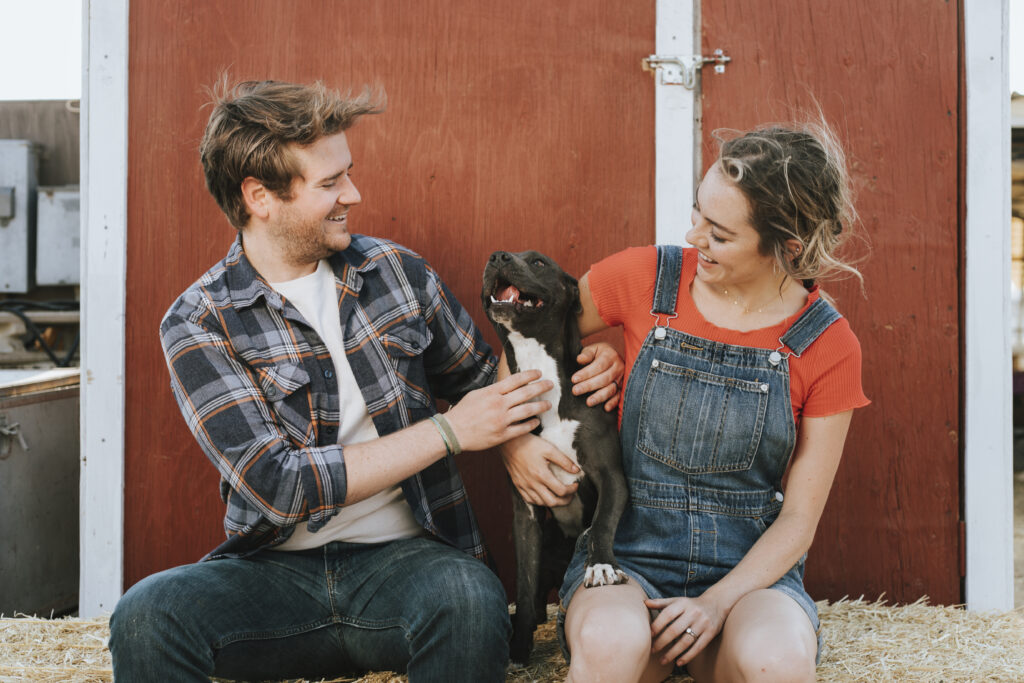Are you considering fostering a rescue dog? Fostering can be a rewarding experience, but it also comes with its unique challenges. In this blog post, we will explore some valuable tips and insights on how to foster rescue dogs successfully. Whether you are a first-time foster parent or have experience with rescue dogs, these tips will help you create a safe and nurturing environment for your furry friend. Let’s dive in and discover the keys to fostering a happy and healthy rescue dog!
How Does Fostering a Rescue Dog Work?

Fostering a rescue dog involves temporarily providing a safe and loving home for a dog in need. As a foster parent, you will work with a rescue organization or shelter to take care of the dog until a permanent home is found. This includes providing food, water, shelter, and necessary medical care. Fostering can range from a few weeks to several months, depending on the individual dog’s needs and the organization’s goals. It is a crucial stepping stone for rescue dogs to transition from a difficult past to a brighter future in a forever home.
Different Foster Programs

Aside from the traditional fostering, there are a few different foster programs that you can take advantage of, such as Foster to Adopt, Foster to Re-home, and Hospice Fostering. These programs provide additional options for fostering a rescue dog based on your individual circumstances and preferences.
Foster to Adopt
Foster to Adopt is a foster program that allows individuals or families to temporarily care for a rescue dog with the intention of eventually adopting them. It provides an opportunity for both the dog and the foster parent to get to know each other and determine if they are a good match for a permanent adoption. During the fostering period, the foster parent assumes the responsibilities of providing care and meeting the dog’s needs. If the foster parent decides to adopt the dog, they can proceed with the adoption process through the rescue organization or shelter. Foster to Adopt is a wonderful option for those who are considering adding a new furry member to their family but want to ensure compatibility and a smooth transition for both the dog and themselves.
Foster to Re-home
Foster to Re-home is a program that allows individuals or families to temporarily care for a rescue dog with the purpose of finding them a suitable permanent home. In this program, the foster parent provides a loving and supportive environment for the dog while actively seeking potential adopters. The foster parent takes on the responsibility of promoting the dog’s availability, screening potential adopters, and facilitating the adoption process. This program is particularly beneficial for rescue dogs that may require more time and effort to find the perfect forever home. By participating in Foster to Re-home, foster parents play a crucial role in connecting these dogs with loving families and helping them start a new chapter in their lives.
Hospice Fostering
Hospice fostering is a special program that involves providing end-of-life care and support for terminally ill or elderly rescue dogs. These dogs may have significant medical needs or have been diagnosed with a terminal illness. Hospice foster parents offer a loving and comfortable environment for these dogs during their remaining time, ensuring they receive the care and attention they deserve. While it can be emotionally challenging, hospice fostering allows these dogs to experience love and compassion in their final days, providing them with dignity and comfort until the end.
What is Expected of Foster Parents?

Now that you understand a little more about the different fostering programs, it’s important to understand what is expected of you as a rescue dog foster parent. While every organization has it’s own guidelines and requirements a few common responsibilities include,
- Monitoring the dog’s behavior and physical health
- Provide food, water, and basic training
- Bring the dog to different adoption events
- Keep your dog leashed
- Report any behavioral or health problems to the shelter
- Take the dog to vet appointments if needed
- Give the dog plenty of love and attention
- Provide a safe and secure environment
- Help the dog adjust to their new surroundings
Remember, fostering a rescue dog is a temporary commitment, but it can have a profound impact on the dog’s life. By providing a loving and supportive environment, you are helping them on their journey to finding a forever home. Thank you for considering fostering a rescue dog and making a difference in their lives.
Tips for Fostering a Rescue Dog

As you can see, fostering a rescue dog can be a rewarding experience, but it also comes with its unique challenges. Whether you are a first-time foster parent or have experience with rescue dogs, here are some tips to make fostering a rescue dog a little easier.
Manage Your Expectations
When fostering a rescue dog, the first thing you want to do is manage your expectations. It’s important to remember that each dog comes with its own unique background and experiences. Some rescue dogs may require additional time and patience to adjust to their new environment and build trust with their foster family. They may have behavioral issues or require specialized care. By managing your expectations and understanding that it may take time for the dog to settle in and feel comfortable, you can approach the fostering experience with patience and empathy. This will help create a smoother transition for both you and the rescue dog, setting the foundation for a positive and rewarding foster journey.
Know Your Limits
Understanding your own limitations is crucial when it comes to fostering a rescue dog. Fostering can be a fulfilling experience, but it also requires time, energy, and resources. It is important to assess your lifestyle and available resources to ensure that you can provide the necessary care and attention to the dog. Consider factors such as your work schedule, living arrangements, and other commitments. By knowing your limits, you can make an informed decision about the type of dog you can foster and the level of care you can provide. Setting realistic boundaries will ultimately contribute to a positive and successful fostering experience for both you and the dog.
Do Your Research
Doing thorough research is crucial when considering fostering a rescue dog. It’s important to educate yourself about the specific needs and characteristics of different dog breeds or types of rescue dogs. Research can help you understand the typical behaviors, exercise requirements, and potential health issues that may be associated with the dog you are considering fostering. Additionally, research can provide insights into training techniques and behavior management strategies that can help you create a positive and supportive environment for the dog. Investing time in research, you can make informed decisions and be better prepared to meet the needs of the rescue dog in your care.
Understand that It’s not Totally Free
It is important to understand that there are some costs associated with fostering a rescue dog. While fostering itself is typically free, there may be expenses that you need to consider. These costs can include food, bedding, toys, grooming supplies, and veterinary care. Depending on the dog’s health and specific needs, there may be additional medical expenses involved, such as vaccinations, medications, or treatments. It’s essential to budget and plan accordingly to ensure that you can provide the necessary care for the dog during their time in your home. Remember, by being prepared and understanding the financial responsibilities, you can provide the best possible care for the rescue dog and contribute to their overall well-being.
Fostering a Rescue Dog
Fostering a rescue dog is a noble and fulfilling endeavor. By opening your home and heart to a dog in need, you are providing them with a safe and loving environment where they can thrive. Remember, every rescue dog has a unique background and may require patience, understanding, and specialized care. It is important to manage your expectations, know your limits, and do thorough research to ensure a positive fostering experience.
By fostering a rescue dog, you are playing a vital role in their journey towards finding a forever home. Your love, support, and dedication can make a significant impact on their lives and help them build trust, confidence, and resilience. So, if you are considering fostering, take the leap and make a difference in the life of a rescue dog. Together, we can create a brighter future for these incredible animals.
